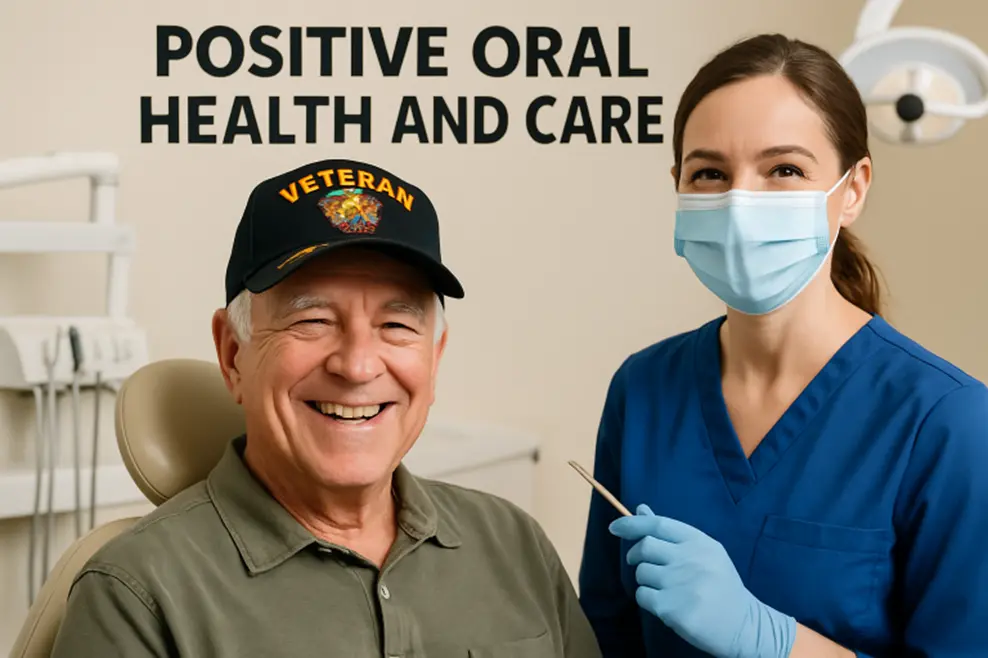Dental and Oral Health for Veterans: Benefits, Prevention, and Wellness
Understanding Dental Benefits for Veterans
Oral health plays a vital role in overall wellness; however, securing affordable, quality dental care presents a significant challenge for many American veterans. Unlike VA medical benefits, VA dental coverage is only available to a select group of veterans. Eligibility is typically restricted to those with service-connected mouth or jaw conditions, 100% service-connected disability ratings, or former prisoners of war. As a result, over 85% of veterans are left seeking alternative options for dental coverage and care.
Exploring private solutions becomes essential for those not covered by the VA. A resource like Delta Dental: dental insurance for veterans, provides flexible plans specifically designed for veterans and their families. This option can help bridge the gap by making oral healthcare more accessible and affordable outside the VA system.
Recent Initiatives to Expand Access
Recognizing the pressing need for better veteran oral care, organizations and government agencies have launched new initiatives. A key example is the VETSmile pilot program, a collaboration between the VA and community dentists nationwide. VETSmile connects veterans ineligible for VA dental benefits with dental providers offering reduced-cost or free services, directly addressing disparities in care access. This model not only delivers necessary treatment, but also raises awareness about oral health in the veteran community.
Community clinics, nonprofit organizations, and advocacy efforts are making progress, but expanding insurance options and implementing policy-level changes remain urgent. Programs like VETSmile demonstrate the impact that strategic public-private partnerships can have in closing gaps and improving veterans’ well-being.
The Link Between Oral Health and Overall Wellness
The mouth is often referred to as the gateway to the body, underscoring the connection between oral and overall health. Neglecting dental hygiene doesn’t just lead to cavities or gum disease; it can also trigger or worsen life-threatening illnesses. Veterans with chronic conditions such as heart disease, diabetes, and respiratory conditions are particularly vulnerable to complications from poor oral health. According to the Mayo Clinic, maintaining a healthy mouth can help lower the risk of infections and improve the management of chronic ailments.
Research continues to reveal links between gum disease and heart problems, diabetes complications, and pneumonia, among others. For veterans, prioritizing oral care is as important as any other aspect of preventive medicine.
Preventive Measures for Optimal Oral Health
Prevention remains the most effective way for veterans to protect their dental health and overall wellness. Adopting these simple but powerful habits, as highlighted by the CDC’s oral health tips for adults, can significantly reduce the risk of dental issues:
- Brush your teeth at least twice a day using a fluoride toothpaste to remove plaque and food particles.
- Floss daily to clean between teeth and below the gumline where toothbrushes can’t reach.
- Reduce your intake of sugary snacks and drinks, as they increase the risk of tooth decay.
- Schedule and attend regular oral exams and cleanings to detect problems early and maintain your mouth’s health.
Small daily actions, coupled with periodic professional care, offer the best defense against dental disease.
Community Support and Resources
Numerous organizations are stepping in to fill the gap for veterans’ oral health needs. The American Dental Association (ADA), for example, sponsors the Give Veterans A Smile initiative, mobilizing dental professionals nationwide to provide free or low-cost dental care to veterans without coverage. Local dental societies and nonprofit clinics also offer screenings, treatment, and education targeted at the veteran community. These collective efforts help veterans connect to vital resources—often when financial and logistical barriers seem insurmountable.
How to Find Help
Veterans seeking assistance can contact their local VA office for a list of participating community providers or consult the ADA’s website for information on events and clinics. Networking with veteran service organizations often uncovers additional opportunities for care and support.
Addressing Barriers to Care
Despite progress, significant obstacles remain. Veterans residing in rural communities face unique challenges, including limited access to providers and inadequate public transportation options. Financial hardship is another frequent concern; even modest out-of-pocket costs can prevent some from pursuing necessary care. Lastly, limited awareness of both the seriousness of oral health problems and available resources keeps many veterans from seeking timely treatment.
Strategies for Overcoming Barriers
- Increasing outreach to remote areas with mobile dental clinics.
- Expanding funding and grants for oral health services targeted at veterans.
- Promoting clear information about insurance plans and community services available to veterans of all ages.
Looking Ahead: Policy and Advocacy
The legislative landscape is slowly catching up with the need. The passage of Senator Elizabeth Dole’s 21st Century Veterans Healthcare and Benefits Improvement Act in January 2025 is a milestone for veterans’ dental care. The act authorizes new demonstration projects that offer comprehensive dental services to veterans with complex chronic illnesses, aiming to demonstrate that preventive care saves healthcare dollars and improves quality of life.
Continuing advocacy from veteran groups, nonprofit leaders, and dental professionals is essential to expand access. Public policy must adapt and deliver new solutions, ensuring all veterans receive the dental care they’ve earned.
Conclusion
Dental health is inseparable from overall wellness, yet far too many veterans are left without a clear, affordable path to care. Preventive steps, community support, and ongoing advancements in legislation are bringing us closer to a future where every veteran enjoys the dignity of a healthy smile. Stay proactive, consult reliable resources, and advocate for better access—because quality dental care honors and supports those who have served.

